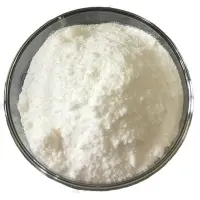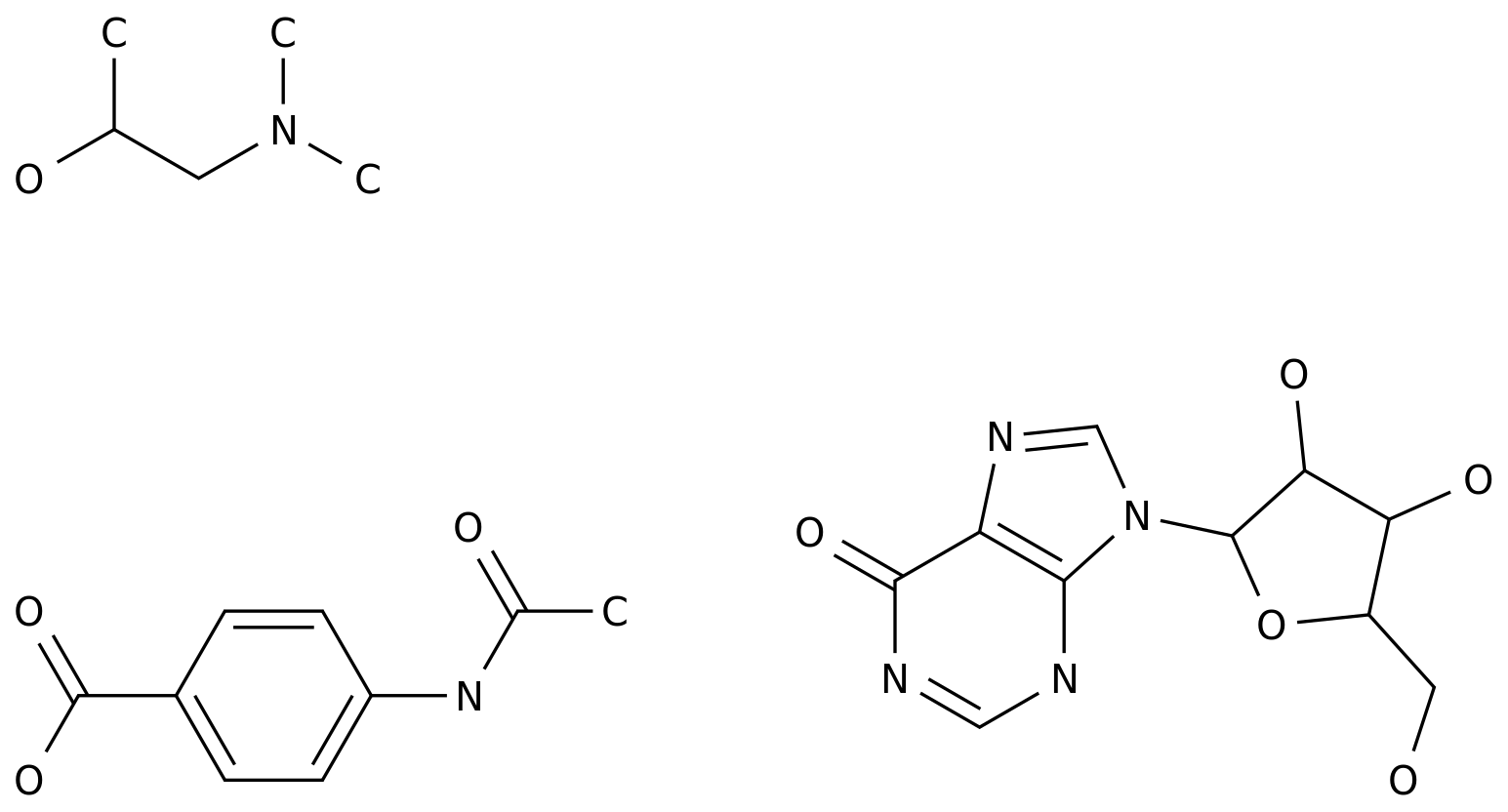-
Categories
-
Pharmaceutical Intermediates
-
Active Pharmaceutical Ingredients
-
Food Additives
- Industrial Coatings
- Agrochemicals
- Dyes and Pigments
- Surfactant
- Flavors and Fragrances
- Chemical Reagents
- Catalyst and Auxiliary
- Natural Products
- Inorganic Chemistry
-
Organic Chemistry
-
Biochemical Engineering
- Analytical Chemistry
-
Cosmetic Ingredient
- Water Treatment Chemical
-
Pharmaceutical Intermediates
Promotion
ECHEMI Mall
Wholesale
Weekly Price
Exhibition
News
-
Trade Service
, June 29, 2020 /prNewswire
Bio Valley
BIOON/--- Since December 8, 2019, several cases of pneumonia with unknown causes have been reported in Wuhan, Hubei Province, China. Most of the patients work edtherece at or near the local South China Seafood Wholesale Market. In the early stages of this pneumonia, severe symptoms of acute respiratory infections develop, and some patients develop rapidly into acute respiratory distress syndrome, ARDS, acute respiratory failure and other serious complications. On January 7, 2020, the China Center for Disease Control and Prevention (CDC) identified a new coronavirus from a patient's pharynx sample, initially named 2019-nCoV by the World Health Organization (WHO). Most patients with 2019-nCoV pneumonia have mild symptoms and a good prognosis. So far, some patients have developed severe pneumonia, pulmonary edema, ARDS or multiple organ failure and death.
a transmission mirror image of SARS-CoV-2 (formerly known as 2019-nCoV) from NIAID RML.11 February 2020, WHO renamed the disease 2019 coronavirus disease (COVID-19). On the same day, the Coronary Virus Research Group of the International Committee on Virus Classification and Naming viruses published an article in bioRxiv, noting that the team had decided that the new coronavirus 2019-nCoV was a variant of the 2002-2003 outbreak of severe acute respiratory syndrome (SARS)-CoV. Therefore, the new pathogen was renamed Severe Acute Respiratory Syndrome Coronavirus 2, or SARS-CoV-2. It is worth noting that although the International Virus Classification Board's Coronary Virus Research Group named the virus SARS-CoV-2, the team's chairman, John Ziebuhr, does not believe that the name (SARS-CoV-2) is associated with SARS (Severe Acute Respiratory Syndrome, also known as atypical pneumonia). However, the renaming of the virus has caused a lot of controversy. The World Health Organization is not satisfied with the name SARS-CoV-2 and does not intend to use it, Science.com reported.coronavirus can cause multi-system infections in a variety of animals. Prior to this, there were six coronaviruses that could infect humans, mainly causing respiratory infections in humans: two highly deadly coronaviruses, severe acute respiratory syndrome (SARS-CoV) and MERS (MERS) coronaviruses (MERS-CoV);based on the serious harm caused by the outbreak in China and around the world, the small group combed through the 2019-nCoV/COVID-19 study published in the journal Nature for readers.
1.Nature: THE ANTIBODY RESPONSE OF COVID-19 REHABILITATION TO SARS-COV-2
DOI: 10.1038/s41586-020-2456-9 during the COVID-19 pandemic, SARS-CoV-2 infected millions of people and claimed hundreds of thousands of lives. The entry of the virus into the host cell depends on the receptor binding domain (RBD) of the SARS-CoV-2 protrusion protein (S). Although there is no vaccine, antibodies are likely to be key to protection. However, little is known about the human antibody response to SARS-CoV-2. In a new study, Davide F. Robbiani et al. reported 149 COVID-19 patients recovering. The plasma collected after an average of 39 days after the onset of symptoms had a different half of the largest pseudovirus neutraltre: 33% were less than 1:50, 79% were less than 1:1000, and only 1% showed a titterine above 1:5000. Antibody sequencing showed amplification cloning of RBD-specific memory B cells that expressed closely related antibodies in different individuals. Although plasma titer is low, half of the maximum inhibitory concentration (IC50 value) of antibodies neutralized in three different tables on RBD is as low as a single digit ng/ml. Therefore, most of the healing plasma obtained from COVID-19 rehabilitation does not contain high levels of neutralization. However, rare but recurring RBD-specific antibodies with strong antiviral activity were found in all the people tested, suggesting that vaccines designed to cause such antibodies may be widely effective.
2.
. Nature: A big discovery! A human antibody can be powerful and
doi, a variety of coronaviruses including SARS-CoV and SARS-CoV-2: 10.1038/s41586-020-2349-y in a new study from the Swiss company Humabs Biomed Bioed SA) and researchers at the University of Washington found that an antibody first identified in 2003 from a blood sample of a patient with Severe Acute Respiratory Syndrome (SARS, commonly known as atypical pneumonia) inhibits the associated coronavirus, including SARS-CoV-2, a new coronavirus that causes 2019 coronavirus disease (COVID-19). The antibody, called S309, is currently on track for rapid development and testing at Vir Biotechnology, with a possible next clinical trial. The findings were published online May 18, 2020 in the journal Nature with the title "Cross-neutralization of SARS-CoV and SARS-CoV2 by human monoclonal antibody". The paper's authors are David Veesler, an assistant professor of biochemistry at the University of Washington School of Medicine, and Davide Corti of The Vir subsidiary Humabs Biomedical. The paper's first authors are Dora Pinto and Martina Beltramello of Humabs Biomedical, and Young-Jun Park and Lexi Walls of Veesler Labs. The first authors of these four papers have been studying the structure and function of infectious complexes of multiple coronaviruses for many years.. The cryogenic electroscopy structure of the sars-CoV-2 sting protein and S309 mAb Fab fragments of the complex, pictured from Nature, 2020, doi: 10.1038/s41586-020-2349-y.using cryogenic electroscopy studies and combined tests, the researchers learned that S309 antibodies recognize a binding site on the surface of the coronavirus, which is conservative in many of the viruses in the genus sarbocovirus, not just in SARS-CoV (the coronavirus that causes SARS) and the SARS-CoV-2 virus. This is probably why this antibody works not just on one coronavirus but on a variety of related coronaviruses. Combining S309 antibodies with other weaker antibodies found in recovered SARS patients can enhance neutralizing the SARS-CoV-2 virus.
3.
. Nature is a major development! Redsiwe is effective for rhesus monkeys infected with SARS-CoV-2!
doi: 10.1038/s41586-020-2423-5. Remdesivir (GS-5734) is a nucleotide simulation pre-drug with extensive antiviral activity that is currently under study in clinical trials of COVID-19 and was recently granted emergency use by the U.S. Food and Drug Administration. In animal models, Redsiwetreatment is effective for MERS-CoV and SARS-CoV infections. In in vitro experiments, Redsewe inhibited the replication of SARS-CoV-2.researchers from the National Institutes of Allergy and Infectious Diseases at the National Institutes of Health studied Redsewe's efficacy in the treatment of sars-CoV-2 infection in rhesus monkeys, and the results of the study, published in Nature, were published in Nature, entitled "Clinical benefit of remdesivir in rhesus macaques infected with SARS-CoV-2".researchers found that 12 hours after the first administration, the animals treated with Redsewe showed no signs of respiratory disease, x-rays showed decreased lung immersion and reduced viral drops in bronchopulmonary alveoli. However, Redsiwetreatment did not reduce the loss of the upper respiratory tract virus. An autopsy after the animal's death found that the animals in which Redsewe was treated had a lower lung virus load and reduced damage to the lungs. Therefore, the early start of Redsivir treatment has clinical efficacy in rhesus monkeys infected with SARS-CoV-2.
4.
. Nature: The blockade of 11 European countries to prevent the spread of SARS-CoV-2 has prevented more than 3 million deaths
doi: 10.1038/s41586-020-2405-7 according to a new model study, the blockade prevents the deaths of about 3.1 million people in 11 European countries as most countries take strict measures to stop the spread of the new coronavirus (SARS-CoV-2). The findings were published online June 8, 2020 in the journal Nature, with the title "Estimating the effects of the non-pharmaceutical interventions on COVID-19 in Europe".
the COVID-19 death toll avoided by European blockade measures. Photo from Nature, 2020, doi: 10.1038/s41586-020-2405-7.scientists at Imperial College Britain, who are advising the British government on the coronavirus, have found that restrictions such as a ban on outings have helped control the outbreak. Using data from 11 European countries provided by the European Center for Disease Control for the year to 4 May, they found that the number of deaths observed in those countries was compared with the number of deaths predicted by their models when restrictions were not imposed. They estimate that these policies averted the deaths of about 3.1 million people.the researchers also calculated that these interventions led to the number of regenerations --- the number of people infected with an infection --- fell by an average of 82% to less than 1.0. "Our results suggest that major non-drug interventions, particularly blockades, have a significant impact on reducing transmission," the researchers said . Consideration should be given to continuing intervention to control the spread of SARS-CoV-2.the researchers estimate that between 12 million and 15 million people were infected during this period--- or 3.2 to 4 percent of the population of the 11 European countries. The number of infections fluctuates widely from country to country, with only 710,000 people in Germany thought to be infected with the coronavirus, or 0.85 percent of the German population. By contrast, Belgium has the highest infection rate, at 8 per cent of the Belgian population, while Spain has about 5.5 per cent of the population, or 2.6 million people, believed to be infected with the coronavirus.
5.
. Two Nature sauors! Chinese scientists isolated SARS-CoV-2-specific neutral antibodies from patients!
doi: 10.1038/s41586-020-2381-y; doi: 10.1038/s41586-020-2380-z. The global outbreak of 2019 coronavirus disease (COVID-19) caused by SARS-CoV-2 is a global health emergency, with urgent need for therapeutic drugs and preventive vaccines to mitigate the outbreak. Antibodies are one of the effective drugs for the treatment of COVID-19, there are many clinical trials are using the recovery of patients' serum treatment, but this method is difficult to mass production, while the number of antibodies in the patient's serum, the specificity is uncertain, so the effect is unknown. Therefore, finding SARS-CoV-2-specific neutral antibodies from these recovered patients is critical for the next step in the development and mass production of therapeutic antibodies. On May 26, Nature magazine published two new studies by Chinese scientists that isolated SARS-CoV-2-specific high-active neutral antibodies from patients. One of the study, entitled "A human neutral neutral antibody targets the weight s the weight of the weight site to SARS-CoV-2", was completed by Yan Jinghua, Gao Fu team, Wang Qihui team of the Institute of Microbiology of the Chinese Academy of Sciences, and the Wuhan Virus Institute of the Chinese Academy of Sciences, the National Institute of Disease Control and Prevention, and the Ditan Hospital in Beijing. In the study, the researchers reported the separation of two specific human monoclonal antibodies (MAbs) from a recovery-period PATIENT of COVID-19: CA1 and CB6. researchers found CA1 and CB6 in vitro to SARS-C.







